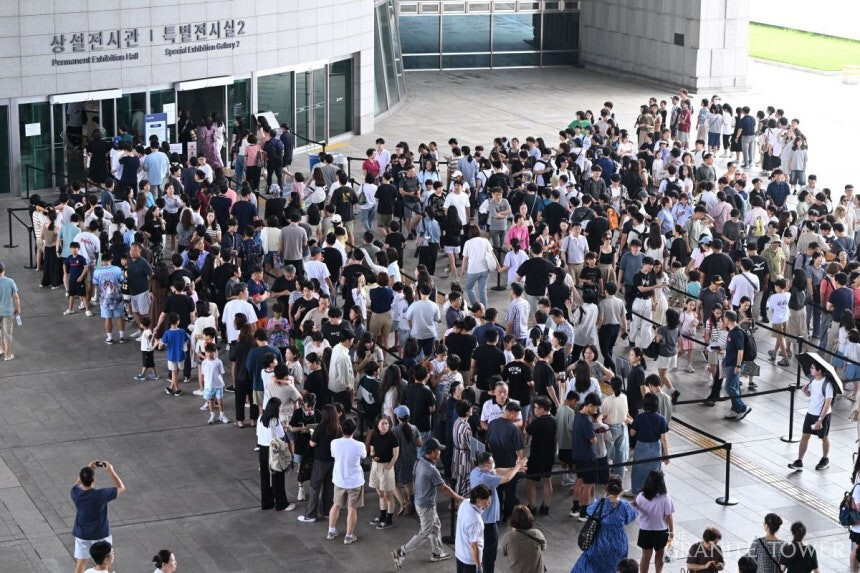
SEOUL, KOREA — The National Museum of Korea (NMK) has achieved an unprecedented attendance record, welcoming over five million visitors this year as of October 15. This historic milestone, the highest in the museum's 80-year history, positions the NMK among the world's elite cultural institutions, comparable in scale to the Metropolitan Museum of Art and other global heavyweights. The surge, fueled largely by a booming interest in traditional Korean culture—particularly following the success of Netflix's animated feature, K-Pop Demon Hunters—has seen a nearly 70% increase in domestic visitors year-on-year.
From January 1 to October 15, the museum recorded 5,016,382 visitors, far surpassing last year's annual record of approximately 4.18 million. The majority of the increase is attributed to a massive 70% spike in Korean nationals, totaling around 4.83 million. Foreign visitor numbers have also risen by 12.7%, reaching 185,705 and on track to easily break last year’s record. The explosive popularity has been consistent, with major draws including the 'Vienna 1900' exhibition and the 'K-Pop Demon Hunters' phenomenon, which has generated significant demand for museum merchandise (Mewds).
Comparing Apples and Oranges: A Domestic Phenomenon
The NMK has celebrated its achievement, noting that annual attendance of five million places it in the top five globally, alongside institutions like the Louvre (8.74 million), the Vatican Museums (6.83 million), the British Museum (6.48 million), and the Metropolitan Museum of Art (5.73 million).
However, cultural critics and former museum officials have cautioned against a simple comparison of statistics. A striking difference exists in visitor composition: while world-class museums abroad often see half or more of their visitors from international tourists, the NMK’s audience is overwhelmingly domestic. An insider noted that it is rare to find a national museum in a developed country with such a high proportion of local visitors. While this shows a commendable domestic interest in Korean heritage, some argue it detracts from the museum’s claim to global standing based purely on visitor count.
The Call for Paid Admission: Focusing on Substance over Numbers
The immense influx of visitors has triggered an intense internal debate: should the museum charge an entrance fee for its permanent collection?
The increasing crowd size has begun to severely strain the visitor experience. Concerns are mounting over overcrowding, worsening viewing conditions, and significant issues with parking and other ancillary facilities. Museum-affiliated sources argue that now is the time to prioritize internal quality over sheer quantity. The proposal to introduce a modest entrance fee for the permanent halls—special exhibitions are already ticketed—is seen as a necessary measure to regulate crowd flow and generate revenue. This income could then be reinvested directly into improving the viewing environment, enhancing facilities, and maintaining the cultural artifacts.
Conversely, others strongly advocate for maintaining the museum's free-of-charge policy. They stress that as a national institution, the NMK must uphold the core value of "universal accessibility," ensuring that the nation's cultural heritage remains freely available to all citizens, regardless of economic status.
For now, the NMK's director has expressed agreement with the need for a paid system in principle but acknowledged that a sudden shift would likely face strong public resistance. The debate highlights a significant tension: balancing the national mission of free cultural access with the operational demands and infrastructure strain caused by unprecedented, record-breaking popularity.
[Copyright (c) Global Economic Times. All Rights Reserved.]




























